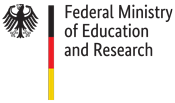SIMTech
The Singapore Institute of Manufacturing Technology (SIMTech) develops high value manufacturing technology and human capital to enhance the competitiveness of Singapore’s manufacturing industry. It is a research institute of the Agency for Science, Technology and Research (A*STAR).
SIMTech has completed projects for companies, big and small, in the electronics, semiconductor, precision engineering, medical technology, aerospace, automotive, marine, logistics and other sectors.
Planning and Operation Management
Today’s competitive business landscape is re-shaping the manufacturing industry; sourcing operations stretch across multiple geographical regions, demand is volatile, regulatory pressures for eco-friendly operations are increasing, and customer demand is ever-evolving at a pace unseen in human history.
The POM group focuses on operations research and system analyses technologies for the effective and efficient management of manufacturing and supply chain operations. Our technologies allow companies to achieve greater productivity and eco-efficiency within their manufacturing operations and also to collaboratively manage business activities and seamlessly integrate manufacturing operations with partners in the supply chain by leveraging on the Internet and communication tools to meet the needs and demands of today’s complex and dynamic business environment.
Sustainable Manufacturing Centre (SMC)
Sustainable Manufacturing is widely identified as the new-generation paradigm shift in the manufacturing industry’s
effort to reduce environmental burdens, gain cost competitiveness, and demonstrate corporate social responsibility.
The Sustainable Manufacturing Centre (SMC) is spearheaded by the Singapore Institute of Manufacturing Technology
(SIMTech), a research institute of the Agency for Science, Technology and Research (A*STAR), and supported by a host
of key government agencies and industry-related associations.
It aims to promote sustainability in the manufacturing industry and bring industry associations and research communities to work alongside with relevant government agencies to develop and implement sustainable manufacturing technologies.
Since its inception in 2009, SMC has actively engaged local manufacturing industry to push the boundaries in the development and implementation of technologies for eco-performance improvements in products and manufacturing
processes. Much effort has been made to create awareness of SMC technologies and promote successful cases. Initiatives
have been established to assist companies measure their eco-performance baseline, improve energy and resource
efficiency, innovate technologies to manufacture green products and packaging, and recycle/remanufacture waste to
strengthen the global competitiveness of Singapore’s manufacturing industry.
Model Factory@SIMTech
A cooperation with “Die Lernfabrik” @ TU Braunschweig
The Model Factory@SIMTech is an actual production environment that allows for experiential experimentation and learning of manufacturing system technologies. For the Manufacturing Control TowerTM (MCTTM), the focus will be on digitalisation technologies. From a research viewpoint, the environment provides an ideal platform for the development of critical technologies such as cyber-physical-production systems (CPPS) and flexible automation across the three layers in a manufacturing environment, namely Shop-floor, Enterprise and Supply Chain. This will provide the essential platform for understanding the Sense & Response manufacturing paradigm, and the means to prototype new technologies, as a continuous learning journey for MCTTM. From an industry viewpoint, it provides a platform for companies to learn, experiment and most importantly, co-create new technologies for the next-generation factories. The next-generation manufacturing technologies will require skillsets that are multi-disciplinary in nature and require continuous learning. The Model Factory@SIMTech will be able to provide these critical learning and practice opportunities through SIMTech’s proven Learn-Practise-Implement (LPI) model before actual implementation on-site.
The collaboration between SIMTech and TU Braunschweig focuses on research and development activities in environmental sustainability in manufacturing activities. As manufacturing activities increasingly take place in urban centres, a balance is sought between optimal resource use, the demand on common resources, and the impact on the environment.
Features of the collaboration include:
- Research and development of technologies relating to efficient resource use in manufacturing
- Mutual enablement of Model Factory@SIMTech and Learning Factory of Technical University Braunschweig as testbeds for new resource efficient technologies
Please visit www.a-star.edu.sg/Portals/69/MCT/model-Factory.html for further details.







